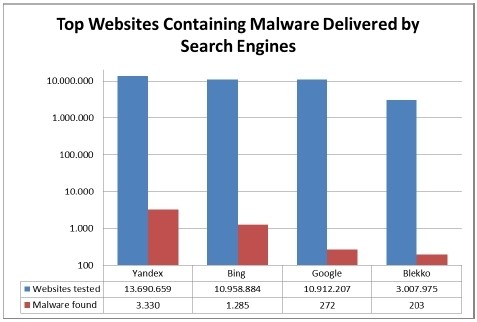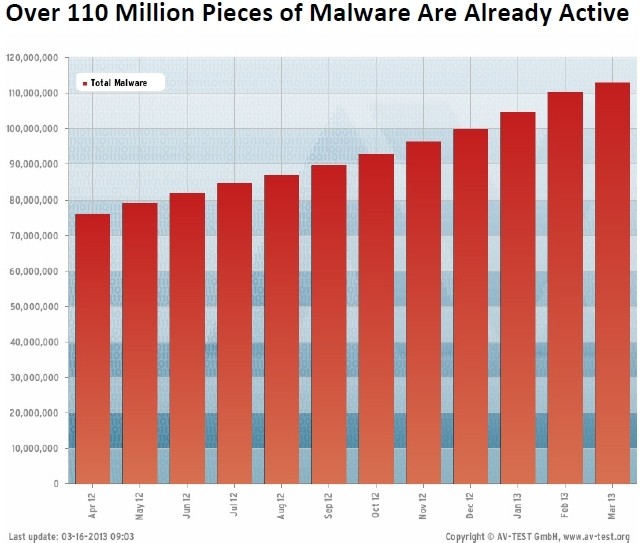An 18-month study has concluded that searches on Bing are five times more likely to link users to malicious websites than searches through Google. The study, conducted by German independent testing firm AV-Test, noted that although strides have been made to curb malware-infested websites, they still manage to appear among the top search results for a given query.
Data for the study was collected from close to 40 million websites spanning seven different search engines. Roughly 25 percent of the results came from Bing while Google accounted for another 25 percent, we're told. Some 13 million results were supplied via Russian search engine Yandex with the remainder provided by Baidu, Blekko, Faroo and Teoma.

The results weren't terribly alarming as only 5,000 instances of malware were discovered across the 40 million sites - a rather small percentage. Of those 5,000, Google delivered the least followed by Bing. Yandex had a rather large number of malware hits comparatively as some 3,300 malicious links were found out of the 13 million search results.

In total, Google had only 272 malicious results out of 10 million searches while Bing returned 1,285 dangerous links across the same number of searches. Blekko only found 203 malicious results out of nearly three million results.
PCMag estimated that the odds of finding a malware-laden website via Google search is about one in 40,118. Keep in mind, however, that those odds are repeated billions of times each day so it's inevitable that there are some dangerous results being returned to unsuspecting users.